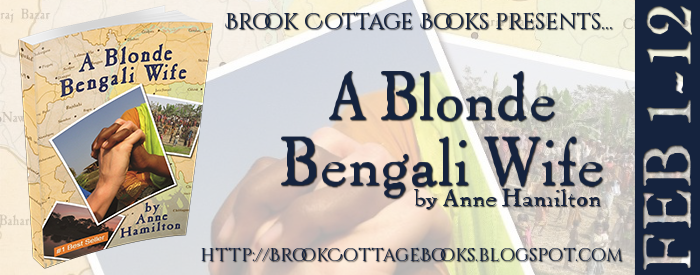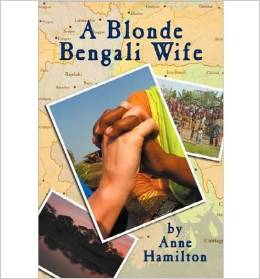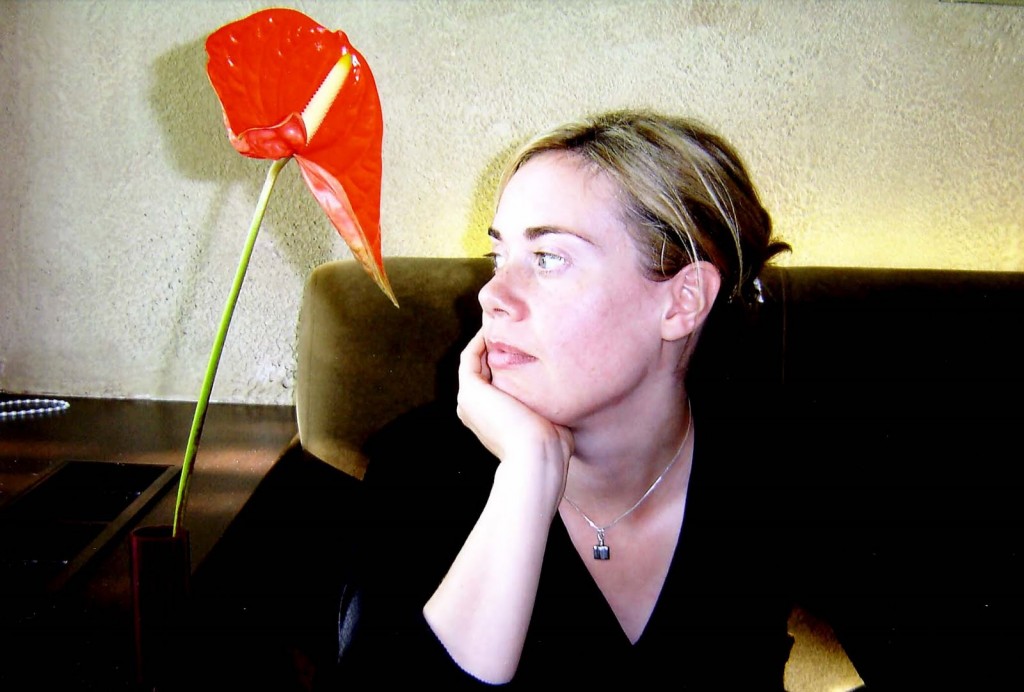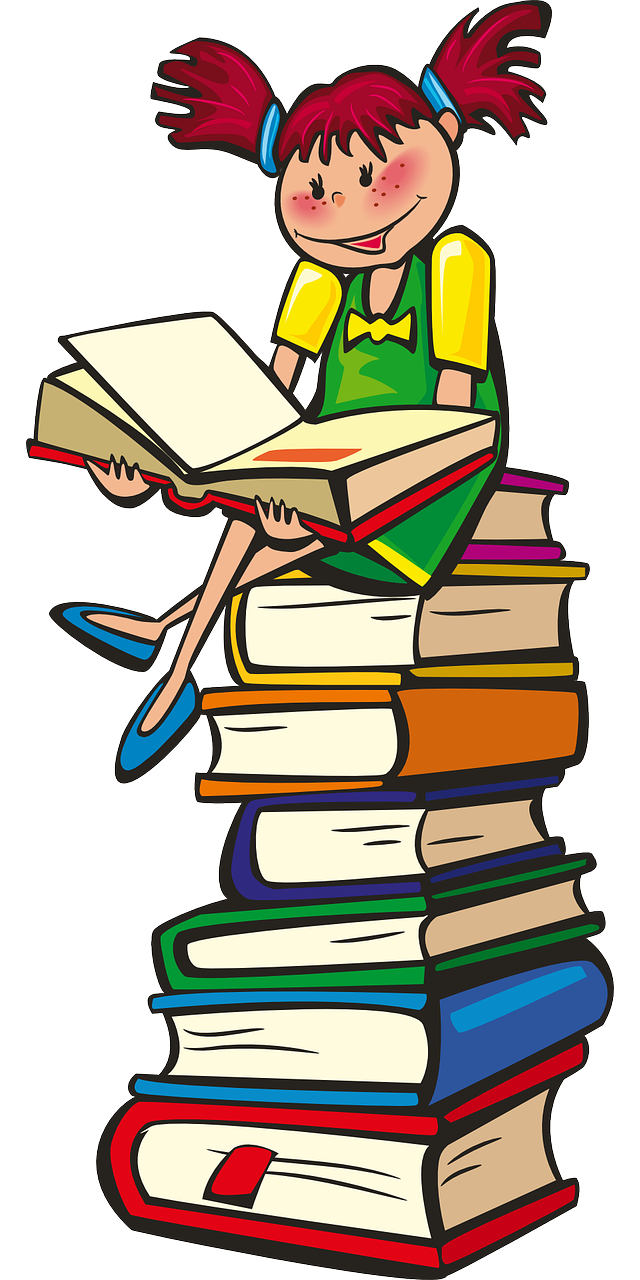
A Blonde Bengali Wife
by
Anne Hamilton

Travel/Memoir
Release Date: Originally released October 2010
Reprinted: 3 November 2015
They all said that Bangladesh would be an experience…
For Anne Hamilton, a three-month winter programme of travel and ‘cultural exchange’ in a country where the English language, fair hair and a rice allergy are all rare in the extreme was always going to be interesting, challenging and frustrating. What they didn’t tell Anne was that it would also be sunny, funny and the start of a love affair with this unexplored area of Southeast Asia.
A Blonde Bengali Wife shows the lives beyond the poverty, monsoons and diarrhoea of Bangladesh and charts a vibrant and fascinating place where one minute Anne is levelling a school playing field ‘fit for the national cricket team,’ cobbling together a sparkly outfit for a formal wedding the next.
Along with Anne are the essential ingredients for survival: a travel-savvy Australian sidekick, a heaven-sent adopted family, and a short, dark, and handsome boy-next-door.
During her adventures zipping among the dusty clamour of the capital Dhaka, the longest sea beach in the world at Cox’s Bazaar, verdant Sylhet tea gardens, and the voluntary health projects of distant villages, Anne amasses a lot of friends, stories…and even a husband?
A Blonde Bengali Wife is the ‘unexpected travelogue’ that reads like a comedy of manners to tell the other side of the story of Bangladesh.
BUY LINKS
AMAZON UK
AMAZON US
**********
Ten Writing Tips
One thing makes a writer. And that same thing makes a better writer. Or a good writer, or even a great writer.
That one thing is writing.
Write, write, and write some more.
I tutor creative writing. When I’m not doing that, I’m editing. Sometimes I’m even writing. I’ve worked with adults just finding their way through literacy to those who have self-published, or secured agents and even, occasionally, publishing deals that involve cold hard cash.
Along the way, I’ve collected my favourite writing hints and tips. You’ll have read a variation of them already, but reassurance never hurts…
1. Write
Day-dreaming about writing is good. So is talking about it and planning it. Reading is also very good. But do those things as well as, not instead of, your actual writing. There will always be a reason to procrastinate and it’s usually about fear – you can’t find the right words to start. Well, forget the right words; that’s editing. Just find some words; that’s writing. If you’re not bursting with ideas, then write a shopping list, a journal entry, a Tweet, a rant… and see where it takes you. The only way to get better at something is to practise doing it.
2. Write Your Way
Read the writing tips you stumble across, listen to the routines of the great and good, try setting aside time each day or a word count to achieve… Try out the ‘how to’ options and find what suits you. Don’t critically compare yourself to others – either in how you write or what you are writing, as no two writers are ever the same; one of the joys of the craft. Writing is like landing an aeroplane or childbirth – as long as you get it down/out safely then who cares how you did it? (Except we all will because we want the secret!)
3. Be Passionate
Say you’re writing a 90 000 word novel, of course, you’re going to have peaks and troughs. Just never lose sight of the bigger picture. Your enthusiasm for your story should underpin it always. If you are bored, so will your readers be. If you are insincere, your readers will pick up on that.
4. Plot
Beautiful words alone do not constitute a story. Well-chosen, they will create a vignette, a prose poem, a lovely paragraph of description. If you want to write a good story, think of the words as the wrapping around the plot. From flash fiction to novels a story has a core structure: beginning, middle, end, in the midst of which something (the plot) has to happen. The resultant conflict and resolution will hook readers and keep them engaged.
5. Enjoy The Writing Process
There is no formula for a bestseller and only a tiny percentage of writers, especially fiction writers, make their money from writing. You need to love writing for writing’s sake. As with anything – training for a marathon, baking the perfect soufflé – you need to keep trying, but you won’t if it becomes solely a chore. Celebrate your achievements along the way rather than letting the end goal take over.
6. Ignore Writer’s Block
Some writing days go better than others; just work through it exactly as you have to with other routines. Take cooking – some days you produce something really tasty, other days it’s passable, rarely is it inedible, but you don’t not do it. So even if writing is hard work and uninspired, carry on. You’ll feel the achievement of not giving in and there’s probably something you can salvage, even if it’s just a word or a sentence. If all else fails, trick your mind: use a notebook and pen instead of your computer; put your protagonist into a ridiculous situation and make notes on how to get him/her out; go for a walk and day-dream…
7. Love the Bad Bits
What about when you cringe at your creation, when you ultimately delete more than you create? Don’t despair – laugh and learn! Sometimes you only find out what works by doing what doesn’t. These ‘mistakes’ are part of your learning experience and guess what – only you will see them. These are the bits you edit out before they ever get to your readers.
8. Be Writing Sociable
Seek out the company of people who understand. However supportive your non-writing networks, after a month they will start asking, ‘have you finished your novel yet? When’s it getting published?’ A good writing class or group will give you exercises, feedback, discussion, deadlines, encourage you to enter competitions. Social media is great for networking and support too – as long as it doesn’t eat up your writing time!
9. Edit
Okay, you’ve written the ‘The End’; your masterpiece is finished… except it isn’t. When you feel you have written and edited and proofread to the best of your ability, that’s when you need an independent editor and/or a proofreader (the two are very different). Spelling, grammar, plot inconsistencies, repetition… you see what should be there, an editor sees what actually is (or is not) there. Whether you are self-publishing or trying to attract an agent/publisher, you are putting yourself out there, so showcase your very best work.
10. Write
Yep – that one little word: beginning and end…
Good Luck and Happy Writing!
**********
About Anne Hamilton

Anne Hamilton wrote A Blonde Bengali Wife after she fell in love with Bangladesh on her first (of many) visits there. The travelogue inspired the charity, Bhola’s Children, and continues to support it. Before she became a full time writer, editor and tutor, Anne’s career was in social work and community health – which led to many of her earlier international travels. Anne can never quite decide if she comes from the East of England or the West of Ireland, so she compromises by living in Scotland, with her small son; they still travel when they can. Anne has a PhD in Creative writing from the University of Glasgow, and is the editor of local online magazine, Lothian Life. She is currently revising and seeking representation for her first novel, Chasing Elena, and working on her second.
Facebook: https://www.facebook.com/ablondebengaliwife
Twitter: @Anne_ABBW & @AnneHamilton7
Goodreads: https://www.goodreads.com/book/show/8860907-a-blonde-bengali-wife
http://anne-ablondebengaliwife.blogspot.co.uk/
www.annehamilton.co.uk
www.bholaschildren.org
**********
GIVEAWAY
AN ECOPY OF THE BOOK
a Rafflecopter giveaway




